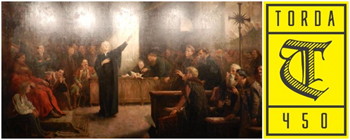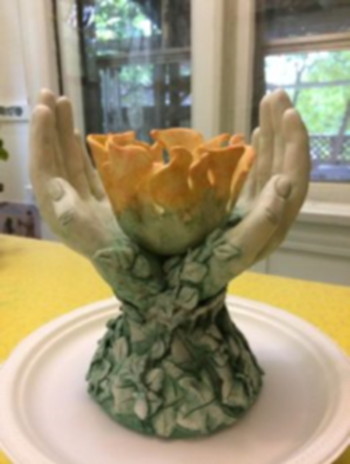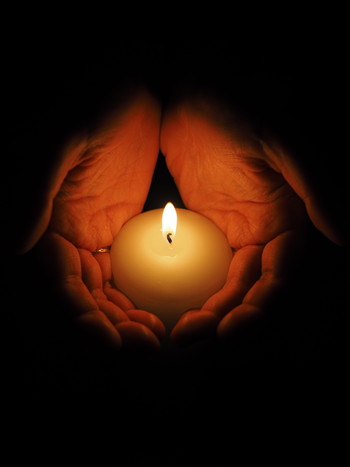CUC eNews: January 22, 2019 – Issue 74
In This Issue:
- Celebrating the Anniversary of Religious Tolerance
- Meet the CUC Staff: Rev. Linda Thomson
- Lay Chaplains: Serving the Unclaimed
- Stories from the 2018 Shining Lights Nominees
- Congregational News: Unitarian Fellowship of Regina
- Reminder: Deadlines Coming Up
- Upcoming Events You Won’t Want to Miss
Celebrating the Anniversary of Religious Tolerance
On January 13, 2018, one of the world’s first statements of religious tolerance will have its 450th anniversary. In 1568, in the city of Torda, in what is now Romania, a religious gathering presided over by Unitarian King John Sigismund proclaimed:
“…In every place the preachers shall preach and explain the Gospel each according to his understanding of it, and if the congregation like it, well. If not, no one shall compel them for their souls would not be satisfied, but they shall be permitted to keep a preacher whose teaching they approve. Therefore none of the superintendents or others shall abuse the preachers, no one shall be reviled for his religion by anyone, according to the previous statutes, and it is not permitted that anyone should threaten anyone else by imprisonment or by removal from his post for his teaching. For faith is the gift of God and this comes from hearing, which hearing is by the word of God.”
Unitarianism was officially recognized for the first time in the history of the world in the Edict of Torda. And
that proclamation is the beginning of our legacy to be a spiritual tradition that resists hatred, oppression, and the narrow view that there is only one way to be faithful, to be religious, to be free.
Source: UUA – https://www.uua.org/international/torda450
Image courtesy of UUA International Office
Meet the CUC Staff: Rev. Linda Thomson
Congregational Life Lead – Central and Eastern Regions
It was 1983, when my partner and I, along with our two young daughters walked into a Unitarian Universalist congregation. We were looking for a liberal faith community where our girls could explore their understanding of faith and could in time, we hoped, ground themselves. I thought of our decision to attend and subsequently join, as an important parenting choice.
Little did I know, though, that in making that choice for our children, I was making a choice that would change just about everything about my life. I know that through my engagement with our imperfect faith tradition I’ve been challenged to question almost everything about my life. I have different friends, shop differently, read the news differently, garden differently, parent (and now grandparent) differently and I also do work that I’d have been hard-pressed to imagine 36 years ago.
In 1998, I left my job in Parks and Recreation and began working in a very part-time capacity for the then St. Lawrence District of the Unitarian Universalist Association. In 2002, with new organizational structures, I began working for the Canadian Unitarian Council. What I loved then, and still love about my work is the front row seat my work affords me. I get to work with and support people who are committed to their congregations, who believe that religion is bigger than many people believe it to be and who are willing to roll up their sleeves in service to their belief in the potential of congregational life.
I know this isn’t easy work for people. Change is tough, every shifting understanding of what congregational life should be is tough, dealing with conflict is tough. So much of what we do in congregations is hard and it would at times seem reasonable to quit and leave. But working with people who don’t quit, who see the value even in the hard moments, who have a vision for the future is what keeps me going. I love supporting people who believe in the possibility of a wider welcome to those we don’t yet know, a more diverse membership, more justice, and more love.
In May of 2013, I was ordained to the UU ministry by my home congregation, the First Unitarian Church of Hamilton. Both of our daughters were there that day. It was a perfect conclusion to that phase of the journey.
I remain grateful to the Hamilton congregation, to my family and to a faith tradition that has given me meaningful work and a greatly enriched life.
Read More about Rev. Linda Thomson
Lay Chaplains: Serving the Unclaimed
– Judy Benger, Lay Chaplain – Unitarian Congregation in Mississauga
According to the Global News, there were 361 unclaimed bodies in Ontario in 2015. These people are mostly men and mostly over 60. The burial of individuals who pass away in Ontario and are not claimed by a family member or a friend becomes the responsibility of the municipality in which the person passed away. The amount of money available depends on the municipality. Often these people were receiving Ontario Disability Support or Ontario Works Assistance.
In Peel, ON an officiant assisting at a graveside memorial for an unclaimed person receives $75. UCM’s Board has provided funds to top up this amount to $150 for a limited number of services so that serving this population does not become a financial burden on the Lay Chaplain. Although this is less than what a Lay Chaplain in our congregation would receive for a standard memorial, I am happy to do these types of memorials. The first principle of Unitarian Universalism is to affirm and promote the inherent worth and dignity of every person. A person who has worth and dignity deserves a memorial that reflects this fact.
I have participated in a few of these services as a pallbearer and I have performed one as a Lay Chaplain. The services are simple, but they are respectful. If relevant personal information about the deceased is available, it is included in the service. If it is known that the person had a specific faith, this faith is honoured. The service is documented and photographed. There may be long lost relatives and friends who find out later that their loved one has died. I hope it gives them comfort to think that this person, who was special to them, even if they lost contact, was buried with dignity.
A social service burial does not mean there will be no mourners. There are many reasons why family members or friends might be unable to cover the cost of a traditional service. The service I performed did have two mourners who were friends of the deceased. They seemed pleased that their friend was buried with respect. After the service, they talked to those of us who were there to assist with the memorial: me (the officiant), the pallbearers and the representatives from the funeral home. They were able to tell us information about their friend that we had not known before. This person did not die alone and friendless.
Even if there are no mourners present at this type of service, the person who passed away mattered. They were someone’s child, perhaps someone’s parent or sibling, someone’s friend or lover at some point in their life. The seventh principle of Unitarian Universalism calls for respect for the interdependent web of all existence of which we are a part. We are all connected and when one strand of this web is cut, we all experience a loss. Our second principle tells us to affirm justice, equity, and compassion in human relations. For me, acting as an officiant for a social service memorial is an expression of this principle. No matter their socioeconomic circumstance, everyone is entitled to leave this life with dignity.
Learn More About Lay Chaplaincy
Stories from the 2018 Shining Lights Nominees
This is the final story from 2018 Shining Lights nominees and features the Don Heights Congregation.
Don Heights Unitarian Congregation has a choir that composes and performs original music. The Don Heights Singers, under the leadership of Music Director Sheila White, produced a book of 30 of their songs. Their Shining Lights proposal to mark 450 years of UU was to have all congregations worldwide sing the title song from “Power of Song: New Hymns for a New Age” on the same day to highlight Torda 450.
Sale of the songbook is a fundraiser for the Don Heights Singers in support of their creativity. The group continues to write new music, such as the song “Love and Justice”, which won a prize in a CUC contest for its conference in Hamilton earlier this year. This is another wonderful song every congregation could learn. Recognizing that music is a powerful unifier, healer and inspiration, Don Heights Singers believe that their music and its spirited Unitarian message resonates, uplifts and brings people together in an embodiment of harmony.
The project envisioned knitting together video and audio clips received from congregations everywhere, each group singing “Love and Justice” as emblematic of Unitarians’ faith in the principles and commitment to the values that this stirring song espouses.
Love and Justice
by Sheila White & the Don Heights Singers
We believe in building a community.
Oh, we believe, united in diversity,
in harmony, in dignity.
Arm and arm, hand in hand,
here we stand for love and justice.
Hear the call, nations all,
nothing works the way that love does.
We believe in fellowship and friendship.
Oh, we believe in a loving spirit.
Equality, let freedom be
the right of every person,
to live a life that’s free,
freedom from oppression, from cruelty,
using our resources
to build a better world,
all for social justice and doing good,
Arm and arm, hand in hand,
here we stand for love and justice.
Hear the call, nations all,
nothing works the way that love does.
We believe. We believe. We believe.
Copyright ©2018 Sheila White
Read More About the Shining Lights Award
Congregational News: Reconciliation and the Unitarian Fellowship of Regina
– Dave Cowley and Jane Knox
 We are all Treaty people. But what does that mean? As Unitarians we were curious. We wanted to know the truth about our history here on the Prairies and why our Government made policies so harmful to Indigenous people (and suppressed our knowledge about it).
We are all Treaty people. But what does that mean? As Unitarians we were curious. We wanted to know the truth about our history here on the Prairies and why our Government made policies so harmful to Indigenous people (and suppressed our knowledge about it).
In 2017, we initiated a reconciliation study group to help us learn more. We began by studying the 94 Calls to Action of the Truth and Reconciliation Commission (TRC). That raised more questions and resulted in rousing debates! The TRC’s work inspired us to dig deeper. Today, we recognize that our governments’ policies (federal, provincial and municipal) still discriminate against Indigenous People. We continue to learn and to be troubled by the circumstances of Indigenous People across Canada, and particularly in Saskatchewan. We know that learning is not enough—action is required to achieve clean water, safe housing, and basic education for all Canadians.
As we learned, our reconciliation study group collected a wealth of resources. Now, we are happy to share some of them with you through the reconciliation section on our website. We included short videos, links to the Treaties and discussions by experts, podcasts about the injustice that continues today, and interviews with Indigenous people. The reconciliation section is a dynamic work in progress that will continue to evolve. Send us your ideas. We organized the resources under four menu areas:
– Fellowship Action
– Get Started
– Look Deeper
– Indigenous Insights
We welcome you to join us on our reconciliation journey. Each of us has a role to play in making Canada a better place to live.
Check Out the Unitarian Fellowship of Regina Website
Reminder: Deadlines Coming Up 
March 31, 2019, is the deadline for a number of programs including:
Sharing Our Faith
The Sharing Our Faith program provides funds for congregational initiatives which enhance ministry, aid congregational projects and outreach, and enhance the Unitarian Universalist movement in Canada. Once a year, congregations are encouraged to hold a “Sharing Our Faith” worship service focused on the UU faith in Canada, with a special collection for the Sharing Our Faith fund.
Grant applications are due by March 31 of each year with all required documents. Completed applications can be e-mailed to sharing-our-faith@cuc.ca. Please note that Sharing Our Faith grants are normally under $5,000. For a larger grant, your congregation may want to consider applying for the Northern Lights award.
Northern Lights
The CUC’s Northern Lights team is looking for ambitious, innovative projects that can make a real difference. The Northern Lights Team welcomes applications for projects worth $5,000 or greater. For smaller projects, there are the Sharing Our Faith grants.
Please alert us by February 1 at northernlights@cuc.ca that you intend to apply for Northern Lights support. The full application is due by March 31. To qualify for Northern Lights support, a congregation must have at least 20% of its members registered as Chalice Lighters. Send your project proposals to northernlights@cuc.ca.
Theological Education Funds
CUC Theological Education Funds (TEF) bursaries are intended to assist Canadian Unitarian Universalists with expenses incurred while studying for the ministry. In special circumstances, applicants who have achieved only aspirant status may be approved. Disbursements are made by the CUC Board on the recommendation of the Board’s Theological Education Committee. The deadline to apply is March 31.
Share what’s going on in your congregation. Contact communications@cuc.ca
Deadline: the 14th of each previous month.
Join the Canadian Unitarian Council on Facebook!
Upcoming Events
National Events
CUC 2019 Annual General Meeting (AGM), May 11 from 1:00 – 4:30 p.m. ET / 10:00 a.m. – 1:30 p.m. PT, the Atrium at Centre for Social Innovation, 192 Spadina Ave (please note the change of location).
CanUUdle XIX, May 17 – 20 – Hosted by the Unitarian Church of Calgary
CanUUdle is the annual national conference for Canadian UU youth and their adult advisors. Registration will be available soon.
Chorus, May 17 – 20, Edge Camp Retreat Centre AB
Each year, Canadian UU young adults (18-35) gather to build beloved community, deepen our cross-country connections, and grow as spiritual beings. Chorus will be held at River’s Edge Camp & Retreat Centre near Calgary. Registration will be available soon.
Regional Events
30th Annual Southern Ontario Midwinter Retreat, February 1 – 3- Registration is still open!
All UU’s are welcome to this retreat, organized by Southern Ontario UUs, at the YMCA Cedar Glen Retreat Centre in Bolton, ON.
International Events
Equity in Action: Gender in an Intersecting World, April 11-13, 2019, New York City
The UU United Nations Office is excited to host this year’s Intergenerational Spring Seminar on gender equity in collaboration with the UU College of Social Justice. Programming will be interactive and intergenerational, encouraging participants to challenge their assumptions, connecting their activism with grounding in UU faith, and empowering them with the tools to bring back to their communities to make change locally and globally.
Youth and Young Adult
Gathered Here: Young Adult Check-In, 2-11, 3-11, 4-8, 5-6, 6-10, 7-8, 8-12, 8 p.m. ET
Gathered Here is a monthly online check-in and gathering for Canadian Unitarian Universalist young adults.
Peterborough Self-Care UU Youth Con, Friday, February 22 – 24
Unitarian Fellowship of Peterborough, Ontario
Webinars
Financial Webinar with Clyde Harris – Part 3, January 23, 7:30 – 8:30 p.m. ET
Discussion: should charities rent out their property, why this should or should not happen, and the pros and cons of property rental.
Worship as a Beacon for Congregational Growth, Saturday, March 30, 9:30 – 12:30 p.m. PT (6:30 – 9:30 ET)
Part one of two, we’ll explore ways to create meaningful worship that engages minds, hearts, and spirits. Our presenter is the Rev. Dr. Barbara Wells ten Hove.
Connecting Across the Generations, April 13, 12:30 – 2:30 p.m, ET
Churches are one of the few places (outside of our own families) where we can make friends across the generations. How can we use that niche to build a sense of community, trust, connection, and care? Facilitated by Asha Philar, CUC’s Youth and Young Adult Ministry Specialist.
Roundtables and Virtual Gatherings
Board Legal Considerations 101, January 26, 12:30 p.m. ET
We’ll discuss insights and questions arising from the “Serving on a UU board in Canada: legal and practical perspectives” video which was prepared for UU congregations.
Practical Applications of Social Media, February 9, 12:30 p.m. ET
A followup to the December webinar on social media. Facilitated by Margo Ellis, this roundtable drills down to the practical aspects of how congregations use social media.
Virtual Gathering: Hope in Hard Times, Wednesday, March 6, 7:00 – 8:30 p.m. ET 0r Saturday, March 9, 12:30-2:00 p.m. ET
Arising out of common concern, voiced by religious professionals, we invite people to join in this time of reflection and sharing – looking at the ways we find Hope in Hard Times.


